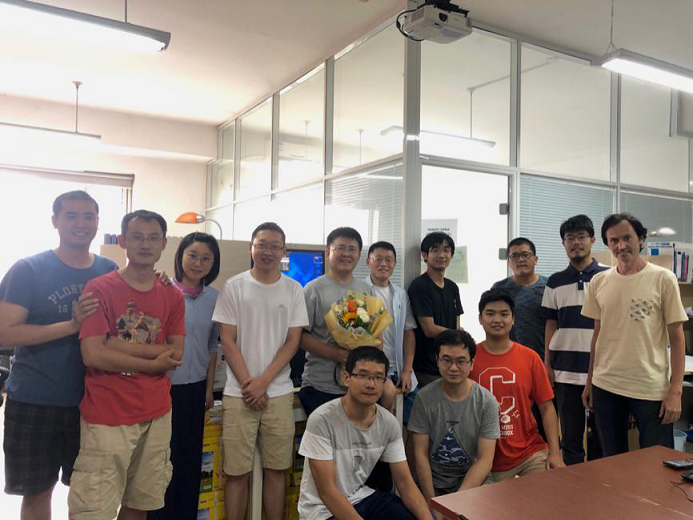The “Galactic Three-dimensional Structures” Research Group
The research group “Galactic Three-dimensional Structures” belongs to the Optical Astronomy Division at the National Astronomical Observatories of the Chinese Academy of Sciences (NAOC). The group was established in 2011 and has been lead by Dr. Jifeng Liu, Deputy Director-General of NAOC and deputy chair of the School of Astronomy and Space Sciences at the University of Chinese Academy of Sciences (UCAS).
The main research areas of this group are:
1.Multi-wavelength studies of stars and compact objects such as black holes (BHs). The accretion and evolution of X-ray binaries, and the nature of the binary components. Searching for stellar-mass BHs using multi-wavelength datasets.
2.Time-domain astronomy based on worldwide network of telescopes, both ground-based and space-borne.
3.Stellar activities indicated by flares, based on the LAMOST and Kepler data.
4.Late-stage evolution of low- to intermediate-mass stars (1–8 solar masses). Formation and evolution of planetary nebulae (PNe); atomic processes under the physical conditions of PNe and radiative transfer; stellar wind interaction that shapes the morphologies of PNe.
5.Atmospheres of exoplanets.
6.Development of machine learning algorithm models based on the large data composed of the datasets from LAMOST, SDSS, APOGEE, etc., for classification of different stars and regression of stellar parameters such as effective temperature and extinction. These models are applied to Gaia DR2 with world-leading calculation accuracy.
Currently, the “Galactic Three-dimensional Structures” research group is composed of eight staff members and eight students. Among the eight staff members, there are two research professors, two associate research professors, three assistant researchers, and one secretary. A UCAS-affiliated staff, Prof. Roberto Soria (nationality Italy) has joined our group for several years. Among the eight students, seven are PhD and one is Master.
Our ultimate purpose is to form an international research group, to take the lead in various research areas (as listed above) and to gain international competitiveness and worldwide reputations.

Group photo